Posts Tagged ‘lawyer’
Fourth Season Begins for Boston’s Hubway Bike Share Program
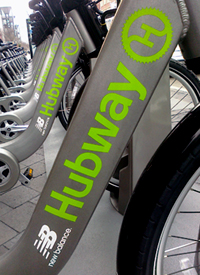 Hubway, Boston’s popular bike share program, launched its fourth season earlier this month. Four years shows a lot of ground covered for the program.
Hubway, Boston’s popular bike share program, launched its fourth season earlier this month. Four years shows a lot of ground covered for the program.
Hubway was launched on July 28, 2011, as a partnership between the City of Boston and Alta Bicycle Share, with 600 bikes at 60 rental stations. The program has been a big success and this season, riders will share 1,300 bikes at 140 bike rental stations in Boston, Cambridge, Somerville and Brookline. The program hit the 1,500,000-rider mark last Thanksgiving, then closed out 2013 with nearly 10,000 annual subscribers (and that’s not counting the short-term memberships).
In the past, Boston split both operating costs and profits with Alta Bicycle Share. Boston paid for its share using private sponsorships and public grant money.
But Boston is now venturing out on its own. Under a new contract, Boston will fund all operating costs and pay Alta Bicycle Share for services. The city will buy all services for a lower rate, about 30 percent less. For each bike dock, this translates into about $70 per month for maintenance and operations. This is lower than other U.S. programs, such as the Capital Bikeshare in Washington D.C., which pays $111 per bike dock.
This is good news and comes at a time when other cities are struggling to pay the bills for their bike shares. Montreal’s bike-share program filed for bankruptcy in January and New York City’s bike program recently asked officials for millions of dollars in aid.
In addition to seeking public grants and private sponsorship, Boston has kept costs down by closing bike racks for the winter. However, this past winter, Cambridge sites were kept open as a pilot test program.
What is new with Hubway this season:
Cambridge. The city kept Hubway racks open throughout this winter, as part of a pilot program. The system saw an average of 2,000 Hubway trips per week, with no injuries or incidents reported. Six new stations are expected to open this season.
Boston. Ten new Hubway stations are expected in Jamaica Plain and Dorchester this year.
Boston bike helmets. The program asks all riders to agree to wear helmets in their rental contract and has partnered with city businesses to offer subsidized helmets in the past. Last fall, it tested the first bike helmet vending machine in Back Bay, on the corners of Boylston and Massachusetts Avenue. The vending machine holds three dozen helmets and accepts returns.
Bike helmets are required for cyclists age 16 and under in Massachusetts. In addition to requiring use for Hubway cyclists, Boston city officials have discussed the possibility of passing a local law mandating use by all cyclists to protect riders from the risk of long-term head injuries in bicycle accidents.
Brookline. The city will re-open the same four stations in Coolidge Corner, Washington Square and Brookline Village.
Somerville. Somerville will open 12 stations this year. One change is the Ball Square station will be moved to Magoun Square.
Read More
Toyota, GM and Mazda Make New Headlines for Safety Recalls
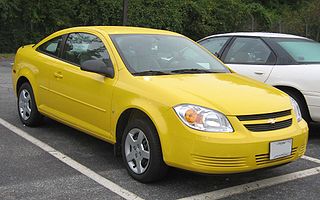 Toyota issues its second largest safety recall ever while GM CEO addresses Congress and Mazda reports a new web of problems
Toyota issues its second largest safety recall ever while GM CEO addresses Congress and Mazda reports a new web of problems
Toyota has more bad news for drivers. Just a few weeks ago, Toyota agreed to pay a record $1.2 billion criminal penalty to the federal government. The Japanese automaker, which has recalled over 9 million vehicles worldwide in recent years, recalled another 6.4 million vehicles on Wednesday for steering, airbag and other safety defects. This is the company’s second largest single recall announcement. Toyota states that it is not aware of any crashes or injuries involving these defects.
In March, Toyota agreed to pay the $1.2 billion criminal penalty to federal government for misleading consumers and the government about unintended acceleration in its cars and trucks. The Justice Department had charged Toyota with wire fraud, but agreed to defer the criminal charge for three years while the company submits to government monitoring.
This week’s recalls involve 27 Toyota models, including the RAV4 and Yaris. The largest recall involves 3.5 million vehicles which have defective spiral cables that can be damaged when the steering wheel is turned. Other defects involve a seat rail that can be pushed forward in a crash, as well as faulty steering column brackets, windshield wiper motors and engine starters.
GM ignition defects draw Congressional inquiry. Last week, General Motors CEO Mary Barra was questioned by Congress about faulty ignition switches in GM vehicles, and about her company’s slow response to protecting the public after learning about at least 13 deaths linked to the defect. GM has recalled over 2.5 million vehicles which may be equipped with the faulty ignition switch.
A week later, the National Highway Traffic Safety Administration (NHTSA) is waiting on more answers from General Motors. It reports the company has failed to respond to more than a third of its written questions. The company is being fined $7,000 each day for failing to fully respond, and the NHTSA is expected to hand the matter over to the Justice Department shortly.
Spiders and hoses and gas, oh my! Mazda also issued a recall this week, one involving an unusual, but familiar safety problem. For the second time in three years, Mazda has recalled 42,000 Mazda6 sedans. This recall involved vehicles from 2010, 2011 and 2012.
The problem is the yellow sac spider. The spiders are attracted to the smell of gasoline and can weave a web in the evaporative fuel hose, causing pressure to build up in the fuel tank. Too much pressure can cause fuel tank cracks, leaks and fires.
In 2011, Mazda had recalled 65,000 Mazda6s from 2009 and 2010 for this defect. The car manufacturer attempted to remedy the defect by installing a spring inside the vehicle’s fuel line, but recently reported nine cases in which this was not adequate. The company is not aware of any fires due to the defect, but will now notify car owners. The remedy requires checking of the evaporative canister vent line and software reprogramming.
Read More
Attorney David White Receives Volunteer of the Year Award from Boston Bikes
Attorney David White was recognized for his contributions to Boston’s cycling community at last night’s 6th Annual Boston Bike Update, which was held in the historic Faneuil Hall in Boston.
White, an attorney at Breakstone, White & Gluck, received the Volunteer of the Year award from Boston Bikes, the city office which oversees the growth of safety infrastructure, the Hubway bike share facilities, and programs for youth and low-income residents. White was honored alongside Bikes Not Bombs of Jamaica Plain, which received the Organization of the Year award. Jon Ramos was named Rookie Advocate of the Year and Vineet Gupta was Unsung Hero of the Year.
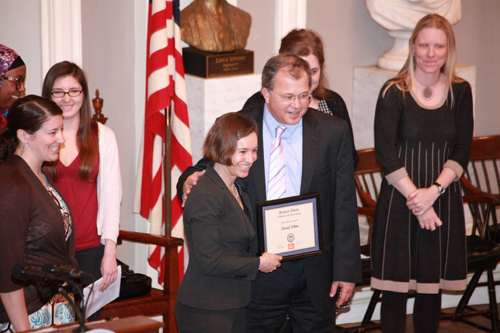
Photo credit: LivableStreets/www.livablestreets.info. Attorney David W. White of Breakstone, White & Gluck and Nicole Freedman, Director of Boston Bikes, during the 6th Annual Boston Bike Update at Faneuil Hall.
Jenny Duquette, Community Cycling Program Manager, introduced White:
“Our Volunteer of the Year is a former president of the Massachusetts Bar Association and a trial lawyer at Breakstone, White, & Gluck, which donated 160 helmets to Roll It Forward in 2013.”
“Like any superstar volunteer, he wanted to have an impact, so last year he volunteered at several bike giveaways as our helmet station guru – getting the kids excited about their new helmets, while making sure they got a helmet that actually fit! This year, his firm is donating helmets, locks, and light sets.”
Boston Bikes and Roll It Forward
Roll It Forward collects, repairs and distributes bikes to low-income Boston residents who might not otherwise have access to one. The program’s goal is to promote a healthier lifestyle with increased physical activity and fewer trips by car. As of January 2014, the program had distributed 2,728 bicycles. It plans to donate 850 more in 2014. In one very busy two-year period, the city’s youth cycling program gave safety classes to over 7,770 youth.
Former Mayor Thomas Menino established Boston Bikes in 2007 by hiring transportation planner and former Olympic cyclist Nicole Freedman. At that time, Boston only had 60 yards of bike lanes and was frequently cited as the worst city in the country for cyclists.
Today, the city has 60 miles of bike lanes. Boston Bikes is working to expand the network by adding a variety of new bike lanes, including new cycletracks, which will put a barrier between bike lanes and cars. The Hubway program, which launched in July 2011, continues to grow with more bike stations in Boston as well as Cambridge, Somerville and Brookline. And the program strongly encourages use of helmets, by asking riders to agree to wear helmets in the Hubway contracts, partnering with businesses to offer subsidized helmets and opening the first-in-the-nation helmet vending machine in Back Bay.
Related:
Watch the Boston Bike Update.
Read more about Boston Bikes.
View Facebook photos of the 6th Annual Boston Bike Update.
Read More
Will Toyota Criminal Penalty Improve Safety?
 Toyota agreed last week to pay a record $1.2 billion criminal penalty for misleading consumers and the government about unintended acceleration in its vehicles. This safety defect and others have resulted in numerous injuries and deaths. Over 10 million Toyota vehicles have been recalled so far.
Toyota agreed last week to pay a record $1.2 billion criminal penalty for misleading consumers and the government about unintended acceleration in its vehicles. This safety defect and others have resulted in numerous injuries and deaths. Over 10 million Toyota vehicles have been recalled so far.
This is the largest criminal penalty ever imposed on a car manufacturer. As part of the agreement, the Justice Department charged Toyota with wire fraud but deferred the criminal charge for three years while the company submits to government monitoring.
We have been reading about Toyota’s safety defects for many years now, along with the more important violation of trust: the Japanese automaker repeatedly failed to warn the public about safety problems. CNN reported last week that the company “at one point boasted internally about saving $100 million in costs by avoiding a full safety recall.”
To date, Toyota has paid out more than $66 million in fines for not immediately reporting defects. Several of these fines have been record-breaking. In 2010, the National Highway Traffic Safety Administration fined the company a record $16 million for its delayed response in notifying the government about defects. In 2012, the NHTSA fined the company an additional $17.4 million.
The company has faced numerous injury and wrongful death lawsuits. In addition to sticky pedals and unintended acceleration, unsecured floor mats and other equipment have caused safety hazards. Last October, an Oklahoma jury decided that defective electronics were to blame for a car accident which killed a woman and seriously injured another person. Toyota was ordered to pay $3 million in damages.
As for Toyota, U.S. Attorney General Eric Holder told the Detroit Press: “Put simply, Toyota’s conduct was shameful. It showed a blatant disregard for systems and laws designed to look after the safety of consumers. By the company’s own admission it protected its brand ahead of its own consumers.”
Still, consumers have continued to buy Toyota. The company was the top-selling automaker in 2012 and 2013, selling 9.98 million vehicles in 2013.
Related:
Toyota to pay $1.2 billion in settlement with U.S. over recalls, CNN.
Read More
Massachusetts Court Judgment is Tragic Reminder About the Social Host Liability Law
A Massachusetts court judgment this week is a tragic reminder of what can happen when teens drink and drive and social host liability laws are ignored.
On Monday, 23-year-old Craig Snow was ordered to pay $1 million each to the parents of Julia Gauthier. In 2010, 19-year-old Gauthier, a freshmen at Salem State College, was killed in a car accident in Lynn when her boyfriend Christopher Maxson rolled the SUV he was driving. She and Maxson had just left a party hosted by Snow, who had provided the alcohol that night. Maxson pled guilty to motor vehicle homicide while driving drunk in December 2010.
Snow was charged criminally under Massachusetts’ social host liability law, but avoided jail time. Gauthier’s family also filed a civil lawsuit against him, resulting in this week’s judgment.
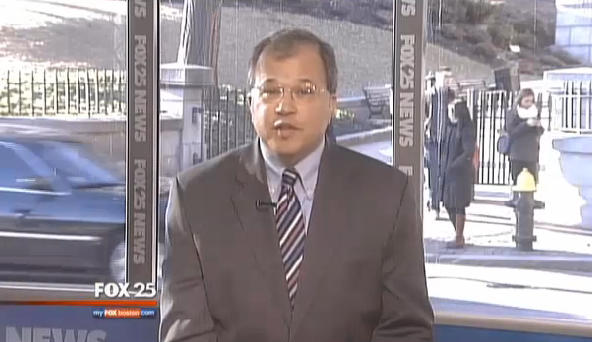
“The question here is reasonableness and you should not furnish so much alcohol to any guest that you have that they leave your house inebriated,” attorney David White said in a television interview this week with FOX 25 News Boston.
White added, “It’s a real strong reminder to parents as the graduation season approaches to take extra care to make sure their children aren’t driving drunk.”
Watch the Fox 25 News Boston interview.
Read more about the social host liability law on our website.
Read More
February Product Recalls: CPSC Urges Consumers to Look for Cedar Chests after Children’s Deaths
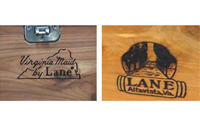 We share some of the February product recalls and notices issued by the Consumer Product Safety Commission (CPSC). Each year, thousands of unsafe products are recalled by the CPSC and other government agencies. The CPSC is now focused on the dangers of wooden chests, issuing a renewed call for the cedar chests which recently trapped two young children in Franklin and warning about other chests which have unsafe latches. Since 1996, the agency is aware of 34 reports of deaths involving wooden storage and toy chests.
We share some of the February product recalls and notices issued by the Consumer Product Safety Commission (CPSC). Each year, thousands of unsafe products are recalled by the CPSC and other government agencies. The CPSC is now focused on the dangers of wooden chests, issuing a renewed call for the cedar chests which recently trapped two young children in Franklin and warning about other chests which have unsafe latches. Since 1996, the agency is aware of 34 reports of deaths involving wooden storage and toy chests.
Protect your family and home by taking a quick glimpse at this month’s list:
Renewed Search for Cedar Chests. On Feb. 27, the CPSC and Lane Home Furniture issued a call for the public to make a renewed search for the company’s cedar chests. On Jan. 12, a young brother and sister from Franklin suffocated to death in one of the chests while playing hide-and-seek. The CPSC investigation determined that the 75-year-old Lane cedar chest closed and automatically latched shut, locking the children inside.
The chest should not have been in use with the defective locks. In 1996, the Lane Company recalled 12 million similar chests which were made between 1912 and 1987. By 1996, six children had suffocated inside the cedar chests. By 2000, a seventh child had suffocated and two others had nearly died. The company has offered new hardware so the chests will no longer automatically latch shut, but reports estimate there are still 6 million chests which need the repair.
Consumers may have one of these chests in their homes even if they do not realize it. Some may have been purchased at second-hand stores or passed down through families. In the Franklin case, the CPSC said the chest was purchased at a local resale store about 13 years ago. Consumers can look for these names inside the cedar chests: “Lane” and “Virginia Maid.”
If you have a chest, you should immediately remove the latch and contact Lane for the replacement hardware. Read the recall notice.
Infantino Recalls Teething Toys Due to Choking Hazard; Sold Exclusively at Target
Infantino has recalled about 191,000 teething toys sold at Target. The toy was the “Go Gaga Squeeze & Teethe Coco the Monkey.” The company received seven reports of infants choking or gagging on the monkey’s tail. No injuries have been reported. The toys were sold at Target stores nationwide and online from December 2012 through January 2014 for $13. Consumers should take these toys away from young children and contact Infantino for a free replacement.
BebeLove Recalls Baby Walkers Due to Fall and Entrapment Hazards
BebeLove Baby Walkers were recalled for not meeting federal safety standards. BebeLove USA recalled about 3,600 models sold on Amazon.com, Overstock.com and small retailers in California, Arizona and Utah from November 2011 through July 2013.
Consumers can are advised to stop using the product and contact BebeLove for a free repair kit.
No injuries have been reported, but the CPSC reports that style number 358 can fit through a standard doorway and is not designed to stop at the edge of a step as required by the federal safety standards. In addition, style number 368 has leg openings which allow a child to slip down to the point their head can become entrapped at the neck. The CPSC said children using these walkers can be seriously injured or killed.
Rowe Fine Furniture
Rowe Fine Furniture recalled about 220 Ottomans due to a risk of suffocation. No injuries were reported, but the company learned a child became trapped in an Ottoman after a sibling closed the lid on the storage compartment. Consumers can contact Rowe for a free replacement lid and a warning label.
Pedestrians Being Fined in Some U.S. Cities
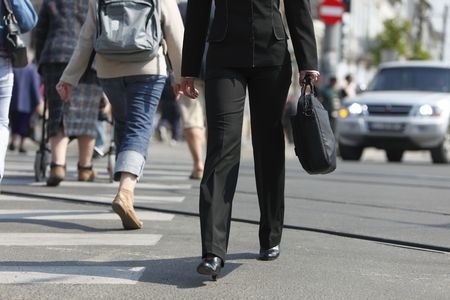 Pedestrians now have to watch out for more than just traffic in two major cities.
Pedestrians now have to watch out for more than just traffic in two major cities.
Jaywalking laws have traditionally gone unenforced in many cities, but New York City and Los Angeles are now telling pedestrians to follow the letter of the law or face citation. Pedestrians are surprised, and in some cases, are facing hefty fines for crossing the street before the traffic signal changes. One man in Los Angeles was ticketed $197 as he walked to work.
“I didn’t even know that was against the law,” he told the New York Times. “I was like, “You are the L.A.P.D., and this is what you are doing right now?”
New York City Police are taking the same steps. The city saw 12 pedestrian fatalities in January, prompting new Mayor Bill de Blasio to announce Vision Zero, a plan to eliminate traffic deaths within 10 years. Vision Zero focuses largely on drivers, but at the same time, New York City Police have started enforcing jaywalking laws.
Pedestrians have responded strongly against enforcement, both in Los Angeles and New York City. In Los Angeles, a lawyer who was ticketed as he walked to a local courthouse told the New York Times:
“Honestly, I cussed them out for about five minutes. I told them what a stupid waste of time this was, and wasn’t it great that they had two police officers standing there when there are obviously more important issues out there.”
In New York City, an 84-year-old man, Kang Wong, has filed notice he plans to sue the city and police department for $5 million. He alleges he was pushed against a wall and beaten as he was cited, sustaining head injuries and other trauma.
In New York City, three of the pedestrians were killed in the Upper West Side, near Broadway and 96th Street. They were a 9-year-old boy who was hit by a taxi as he crossed the street with his father, a young doctor struck by an ambulance outside her apartment building and a 73-year-old man hit by a tour bus.
After these deaths, the city installed electronic signs warning pedestrians to use the crosswalks. Police stood by with a bullhorn, citing pedestrians who violated jaywalking laws $40-$100.
Every city has an interest in this conversation, including here in Boston and Massachusetts. Our state sees an average of 86 pedestrian deaths each year, nearly one fifth of all traffic fatalities, according to WalkBoston, a non-profit advocacy organization which represents pedestrians and 75 cities and towns across the state.
But rather than ticket pedestrians, WalkBoston advocates for improving infrastructure and education. For instance, it notes that 90 percent of pedestrians killed are struck by cars traveling 40 mph compared to 5 percent who die by cars traveling at 20 mph. One way to encourage drivers to slow down is to reduce travel lane widths, the organization says.
Perhaps you are wondering what the fine for jaywalking is in Massachusetts. We hope you are sitting down: It is $1.00! But after three offenses, the fine doubles M.G.L. c. 90, § 18A. Municipalities won’t balance their budgets on jaywalking tickets, that’s for certain.
Related:
New York City takes aim at jaywalking, The Boston Globe.
Read More
Product Recalls in January: Baby Strollers, Walmart Table Sets
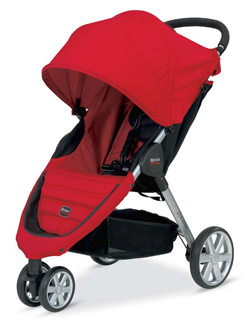 A few weeks ago, two young children in Franklin tragically died after becoming trapped in a defective wooden hope chest during a game of hide and seek. We follow reports of defective products carefully, and we now share some of the January product recalls issued by the Consumer Product Safety Commission (CPSC). That agency is charged with protecting the public from unreasonable risks of injury or death associated with consumer products.
A few weeks ago, two young children in Franklin tragically died after becoming trapped in a defective wooden hope chest during a game of hide and seek. We follow reports of defective products carefully, and we now share some of the January product recalls issued by the Consumer Product Safety Commission (CPSC). That agency is charged with protecting the public from unreasonable risks of injury or death associated with consumer products.
Britax Stroller Recall
Britax recalled 225,000 strollers last week due to the stroller’s folding mechanism, which poses a risk for partial fingertip amputation. The company had received eight incident reports, including one partial fingertip amputation, one broken finger and severe finger lacerations.
Consumers are advised to stop using the recalled strollers immediately and contact Britax for a free repair kit.
The recall involves these models: Britax B-Agile, B-Agile Double and BOB Motion Strollers. They were sold at major retailers and juvenile product stores nationwide from May 2011 through June 2013. They were also sold through Amazon.com, ToysRUs.com and other online retailers. They sold for between $250 and $450.
In recent years, Maclaren USA has also recalled strollers with hinges which posed an amputation risk. In 2009, Maclaren USA recalled one million strollers after 12 reports of fingertip amputations and three other incidents. The company re-issued the recall in 2011. By that time, it had received a total of 149 reports, including 17 reports of fingertip amputations and other injuries, including lacerations and fingertip entrapments/bruising.
Pacifier Recalls
There were two recalls related to pacifiers this month. On Jan. 22, Playtex recalled 1.25 million pacifier holder clips in the U.S. and 150,000 in Canada. These clips attach the pacifier to clothing, diaper bags and strollers.
Playtex received 99 reports of the holder cracking or breaking. No injuries have been reported. Consumers are advised to stop using the product and contact Playtex for a full refund.
Last week, Fred & Friends recalled three models of its “Chill Baby” pacifier line, including 183,000 in the United States and 17,000 in Canada. The pacifiers have novelty features which can detach and do not meet federal safety standards. No injuries have been reported but consumers are advised to stop using the pacifiers and return them to Fred & Friends for a $12 refund.
Gree Dehumidifier Recall Expanded
In September, Gree recalled 2.2 million dehumidifiers under 12 brand names because they posed a risk for fire and burns. It expanded this recall last week, adding another 350,000 dehumidifiers under the GE brand name in the U.S. and 2,700 in Canada. The company had received 16 reports of incidents, including 11 reports of overheating with no property damage and 5 reports of fires associated with $430,000 in property damage.
The previous recall was associated with more than 71 fires and $2,725,000 in property damage. No injuries have been reported.
These dehumidifiers were manufactured by Gree Electric Appliances of China and imported by GE Appliances of Louisville, Kentucky. They were sold from April 2008 through December 2011 at Sam’s Club, Walmart and other stores in the U.S. and Canada. They were also sold on Amazon.com and Ebay.com. They sold for between $180 and $270. Consumers are advised to stop using the dehumidifiers and contact Gree for a refund.
Walmart Card Table and Chair Sets Recalled
Walmart recalled its Mainstays five-piece card table and chair set earlier this month because the chairs can collapse and may pose a risk of finger injury, including amputation. The retailer received 10 reports of injuries, including one finger amputation, three fingertip amputations, sprained or fractured fingers and one report of a sore back.
These table sets were sold in Walmart stores and online from May 2013 through November 2013 for about $50. On the bottom of the chairs, they have a label which reads: “Made by: Dongguan Shin Din Metal & Plastic Products Co,” or “Made by: Taiwan Shin Yeh Enterprises”, is printed on a white label on the bottom of the chairs.
Consumers are advised to stop using this product and return to Walmart for a full refund.
Related:
Consumer Product Safety Commission website.
Strollers Recalled by Britax Due to Partial Fingertip Amputation Hazard, CPSC.
Gree Expands Dehumidifier Recall to Include GE Brand Dehumidifiers Due to Serious Fire and Burn Hazards, CPSC.
Read More
Unsecured Load Causes Deadly Crash
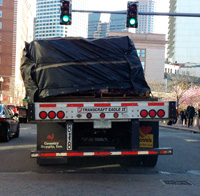 A Framingham motorist tragically lost her life yesterday when she slowed to avoid an unsecured mattress which flew off a truck on Rte. 128 in Burlington, Mass. Authorities believe the mattress broke free from a dump truck with a white cab occupied by two men. As the car slowed to avoid the mattress on the highway, a second car hit it causing fatal injuries.
A Framingham motorist tragically lost her life yesterday when she slowed to avoid an unsecured mattress which flew off a truck on Rte. 128 in Burlington, Mass. Authorities believe the mattress broke free from a dump truck with a white cab occupied by two men. As the car slowed to avoid the mattress on the highway, a second car hit it causing fatal injuries.
The truck operator did not stop at the scene or identify himself afterward. The victim had slowed her car, a Toyota Corolla sedan, and tried to avoid hitting the mattress. She was struck from behind by a Toyota Tundra pick-up truck. The Toyota Tundra pick-up truck driver suffered minor injuries. Police are looking for the driver of the dump truck, which left the scene.
Unfortunately, this was not an isolated case.
According to the AAA Foundation for Traffic Safety, there are approximately 25,000 crashes a year in North America related to unsecured loads, resulting in approximately 80-90 deaths. Here in Massachusetts, a 27-year-old Lynn man was killed in a similar accident in September 2011, when a 400-pound tire being hauled by a truck broke loose on Interstate 93 in Somerville.
Drivers have a responsibility to secure loads and operate safely, whether they are commercial or non-commercial drivers. All 50 states and the District of Columbia have statutes pertaining to unsecured loads and fines, which range from $10 to $5,000, according to the Government Accountability Office (GAO). In 15 states, violations carry the possibility of imprisonment. Drivers may also face civil lawsuits to compensate the injured and their family.
This may be the third serious truck-related accident in Massachusetts this week. On Sunday, a pedestrian in Uxbridge was struck and killed by an unknown driver. The driver of a tractor-trailer truck, who is employed by Gorham Transport, later contacted police and said he was in the area. Police are investigating.
On Monday morning, a tractor-trailer carrying 11,000 gallons of gasoline overturned in Fall River, engulfing in fire and requiring some to be evacuated. The driver was treated for non-life threatening injuries and the crash is still being investigated.
About Breakstone, White & Gluck
Our Boston truck accident lawyers have over 100 years combined experience representing individuals injured in tractor-trailer and commercial truck accidents. If you have been injured, learn your rights for seeking compensation. For a free legal consultation, contact us toll-free at 800-379-1244 or 617-723-7676 or use our contact form.
Commercial Truck Accidents Cause Thousands of Deaths Each Year
 A tractor-trailer overturned and caught fire this morning in Fall River, causing major traffic delays on Route 24 as well as evacuations.
A tractor-trailer overturned and caught fire this morning in Fall River, causing major traffic delays on Route 24 as well as evacuations.
The tractor-trailer, which was transporting 11,000 gallons of gasoline, overturned near Exit 5 northbound. Police report the driver was sent to Rhode Island Hospital with non-life threatening injuries. The truck was owned by J.P. Noonan of West Bridgewater. No other vehicles were reportedly involved. At this time, the cause of the truck accident is under investigation.
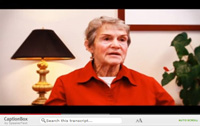 The trial lawyers of Breakstone, White & Gluck have extensive experience representing individuals who have been seriously injured in tractor-trailer accidents. Recently, we have obtained $3 million for a woman who was hit head on by an inattentive operator of an 18 wheeler. Below, an online review from another recent client who was rear-ended by a tractor-trailer and seriously injured:
The trial lawyers of Breakstone, White & Gluck have extensive experience representing individuals who have been seriously injured in tractor-trailer accidents. Recently, we have obtained $3 million for a woman who was hit head on by an inattentive operator of an 18 wheeler. Below, an online review from another recent client who was rear-ended by a tractor-trailer and seriously injured:
Today’s accident points to the fact that truck accidents are too common on our roads. In 2014, Massachusetts has already seen at least two serious tractor-trailer accidents, including one last week on the Mass Turnpike in Palmer and another in Oxford earlier this month.
The Oxford accident sent two people to the hospital with life-threatening injuries. In 2012, over 3,500 people died in large truck crashes in the U.S., according to the Insurance Institute for Highway Safety (IIHS). The majority – 67 percent – were passenger vehicle occupants. Truck occupants accounted for 17 percent of deaths and the remaining 15 percent of deaths were pedestrians, bicyclists and motorcyclists.
Truck drivers have special licensing requirements and regulations to follow. Trucks are harder to control than passenger cars and have much longer stopping distances. According to IIHS, loaded tractor-trailers take 20-40 percent farther to stop than cars and even more distance in poor weather conditions or if a truck has poorly maintained brakes.
To prevent driver fatigue, drivers of large trucks must follow federal regulations restricting their time behind the wheel. They are subject to federal hours-of-service regulations, a maximum of 11 hours of driving after 10 consecutive hours off-duty, according to the Federal Motor Carrier Safety Administration.
Truck companies must also follow regulations for inspection, repair and maintenance of their vehicles and not operate any vehicle which is likely to cause an accident or breakdown.

